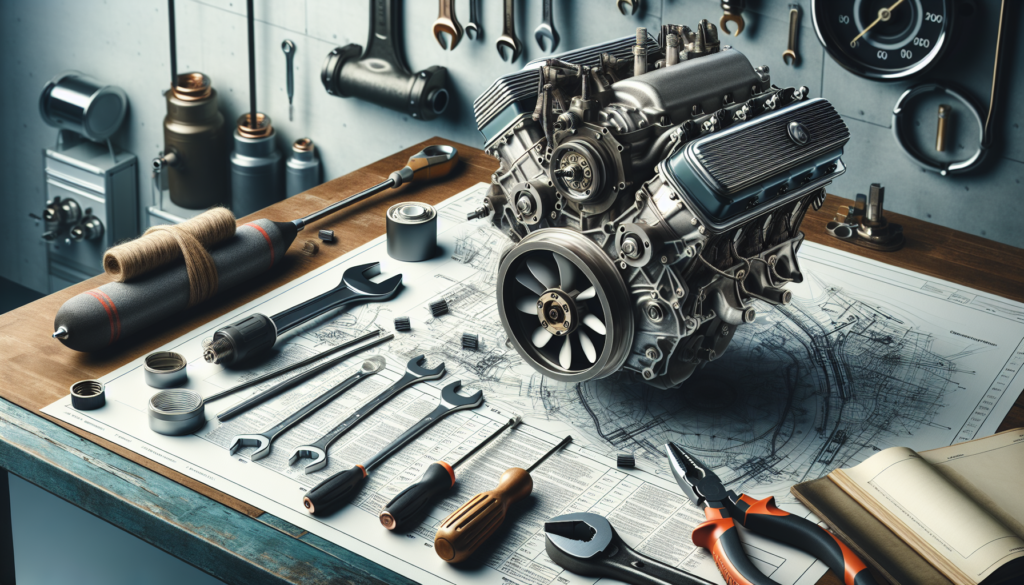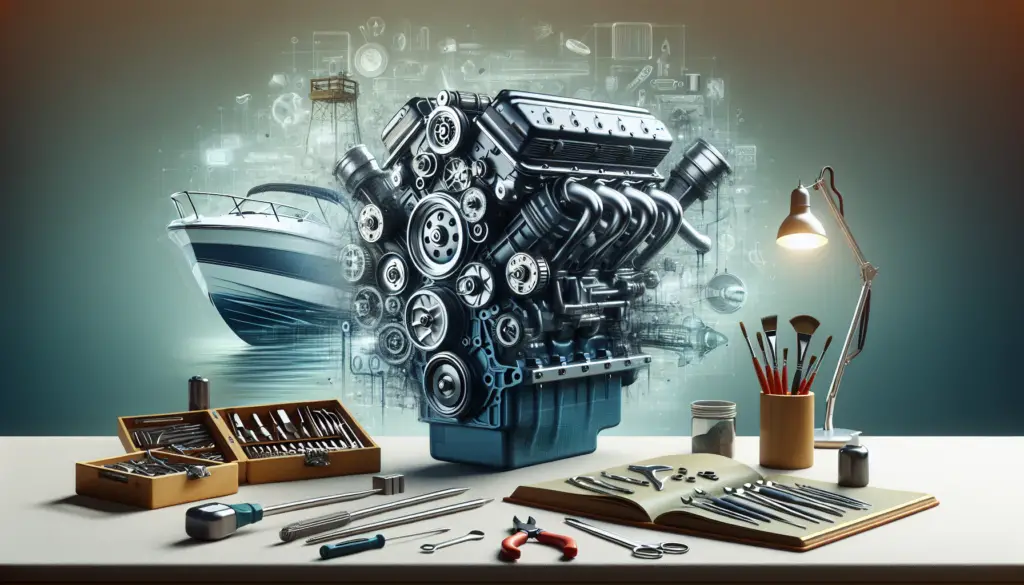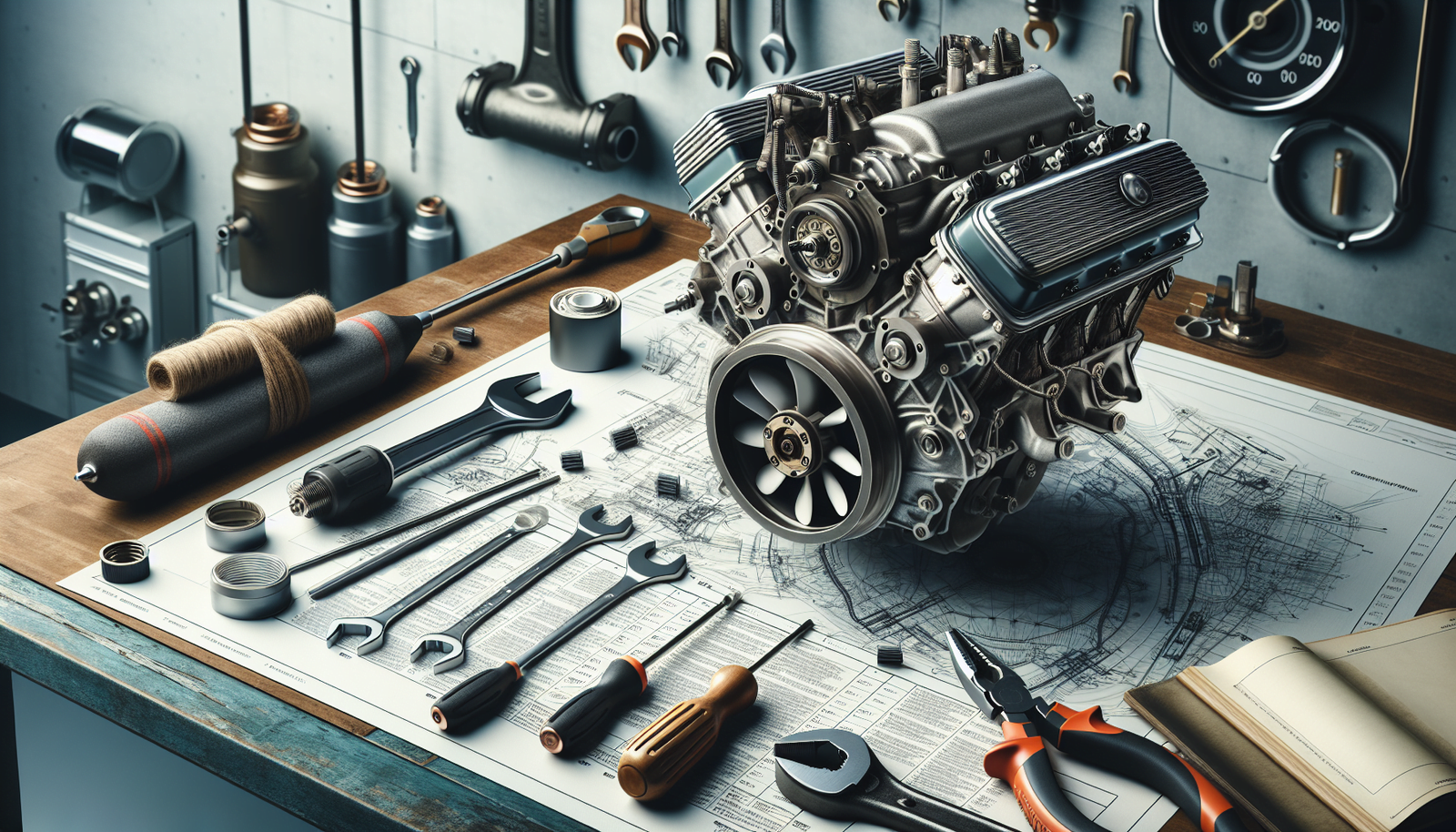Planning to spend some quality time on the open waters this summer? A surefire way to ensure you get the most out of your boat adventures is to guarantee your boys’ heart, the engine, runs smoothly. The article “Proper Boat Engine Maintenance For Long-Term Use,” is the perfect guide for you! Through this engaging read, you’ll gain insights into routine checks, necessary upkeep tasks, and preventive measures to add years to your maritime companion’s life.

Understanding the Importance of Proper Boat Engine Maintenance
Owning a boat is a great commitment and maintaining your boat’s engine is, perhaps, the most crucial aspect of that commitment. A boat’s engine is its lifeline, and without proper care and timely maintenance, your boating experience could quickly turn into a frustrating and expensive ordeal.
Knowing the basics of boat engine
Before diving into the nitty-gritty of boat engine maintenance, it’s important to understand some basics. A boat engine is, in many ways, similar to a car engine. It’s a complex system that converts fuel into motion, ultimately propelling your vessel forward. It has several key components including cylinders, valves, pistons, along with a cooling, lubrication, and a fuel system. Understanding these parts and how they work together would go a long way in managing your boat’s engine.
Benefits of regular maintenance
There are many advantages to maintaining your boat’s engine regularly. For one, it ensures that your boat is always ready to go when you are. Routine maintenance can keep your engine running smoothly, extend its lifespan, and help you avoid unexpected breakdowns. Moreover, well-maintained engines are more fuel-efficient and better for the environment.
Risks of neglected maintenance
The risks of neglecting your boat’s engine maintenance are certainly considerable. Lack of proper maintenance can result in decreased engine performance and serious damage that can be costly to repair. Moreover, a poorly maintained engine can leave you stranded in the middle of a water body, posing serious safety risks.
Types of Boat Engines
Before delving into the specifics of boat engine maintenance, it’s worthwhile to understand the different types of boat engines out there.
An overview of different engine types
There are primarily four types of engines used in boats – outboard, inboard, sterndrive, and jet drive. Outboard engines are mounted on the outside of the boat, inboard engines are inside the boat’s hull, sterndrive engines are a hybrid between the first two, and jet drive engines utilize a jet of water for propulsion.
Specific maintenance needs of each engine
Each of these engines has specific maintenance needs. For example, outboard engines require regular changes of spark plugs and fuel filters, while inboard engines need timely oil changes and cooling system checks. Sterndrive engines need special care for their bellows, gimbal bearing and u-joints. Jet drive engines, on the other hand, require regular inspection and servicing of impeller and wear ring.
Essential Tools for Boat Engine Maintenance
Just like any other mechanical job, maintaining your boat’s engine requires the right tools for the job.
List of important toolkit items
In your boat engine maintenance toolkit, you should have items like a wrench set, socket set, screwdriver set, pliers, wire cutters, a digital multimeter for diagnostic checks, oil filter wrench, spark plug socket and feeler gauges for gap measurement.
What each tool is used for
Each tool in your toolkit will come in handy for different maintenance tasks. Wrenches and sockets will help in removing and installing parts, while pliers and wire cutters will be needed for handling wires and other small components. A spark plug socket and feeler gauges are essential for inspecting and adjusting spark plugs, and a digital multimeter will be essential for diagnosing electrical problems.
Boat Engine Inspection
Regular inspection is a vital part of boat engine maintenance. It is aimed at spotting potential problems before they become major issues.
Areas to inspect during routine checks
During a routine check, you should inspect the fuel system, oil levels, cooling system, belts, hoses, and electrical connections. Check for leaks, worn-out parts, loose wires, and corroded connections.
Red flags that indicate potential problems
Red flags that might indicate potential problems include unusual engine noise, excessive smoke, oil in the bilge, leaks around seals and gaskets, and any noticeable drop in engine performance.

Boat Engine Cleaning
Keeping your boat engine clean is essential for its proper functioning and longevity.
The importance of keeping a clean engine
A clean engine not only looks good but also allows you to easily spot any leaks or other issues. It prevents the build-up of grime and dirt that could interfere with engine components and lead to premature wear and tear.
Safe and effective cleaning techniques
When cleaning your boat’s engine, make sure to steer clear of directly spraying water on the engine. Instead, use a degreaser, a brush, and a cloth to clean the engine and its parts. Rinse carefully and dry thoroughly to avoid lingering moisture, which can lead to corrosion.
Engine Oil Change and Maintenance
Just like your car, your boat’s engine relies on oil for lubrication and optimal functioning.
When and why to change your engine oil
Oil should generally be changed every 100 hours of operation or at least once a year. Regular oil changes are necessary because over time, oil breaks down and cannot provide adequate lubrication, increasing the risk of engine damage.
Types of oil to use
There are many types of oil available, so it’s important to select the right one for your engine. The type of oil you should use can depend on various factors like engine type, model, and the manufacturer’s recommendations.
Steps for performing an oil change
To perform an oil change, first, warm up the engine, then shut it off and drain the oil. Replace the oil filter, and then refill with fresh oil to the recommended level.
Fuel System Maintenance
Maintaining your boat’s fuel system is critical for optimum engine performance.
The importance of maintaining your fuel system
A well-maintained fuel system ensures efficient fuel combustion and reduces the risk of engine problems. It can help prevent issues such as poor acceleration, difficulty in starting the engine, and even engine damages.
Steps for fuel system maintenance
Fuel system maintenance involves regularly checking and replacing fuel filters, inspecting fuel lines for leakage or damage, and keeping the fuel tank clean.
Cooling System Maintenance
Your boat’s engine generates a lot of heat, and the cooling system plays a crucial part in preventing overheating.
Why the cooling system is essential for your engine
The cooling system is essential for maintaining the correct operating temperature of the engine. Without a proper cooling system, the engine can overheat, causing severe damage.
Guidelines for cooling system care
To maintain your engine’s cooling system, inspect its key components such as the water pump, impeller, thermostat, and coolant often. Replace or repair these parts as necessary.
Addressing Common Engine Problems
Despite the best maintenance practices, engine problems can still arise. However, knowing how to diagnose and fix common issues can save you a lot of headaches.
Common issues with boat engines
common engine problems can range from an engine that won’t start or overheating to issues like an engine misfire or oil contamination.
Troubleshooting tips and fixes
For an engine that won’t start, check if there’s fuel in the tank and whether the battery connections are clean and tight. If the engine is overheating, inspect the cooling system for blockages. A misfiring engine could be due to faulty spark plugs, and oil contamination often indicates a failed gasket.
Winterizing Your Boat Engine
For those living in colder climates, winterizing your boat engine is a must to prevent damage from freezing temperatures.
Why winterizing is important
Winterizing is important because it protects your engine from the damaging effects of freeze-thaw cycles. If water is left in the engine or its systems, it could freeze in the cold, expand and cause serious damage.
Steps to properly winterize a boat engine
To properly winterize a boat engine, run a non-toxic antifreeze through the engine’s systems, add a fuel stabilizer to the fuel system, change the engine oil, and remove the battery. Also, protect the engine with a good-quality cover that will help keep it clean and dry.
In conclusion, proper boat engine maintenance is not just about ensuring a smooth sailing experience, but also about ensuring the safety of you and your loved ones. So, take the time and effort to take care of your boat’s engine, and it will reward you with many years of reliable service.

